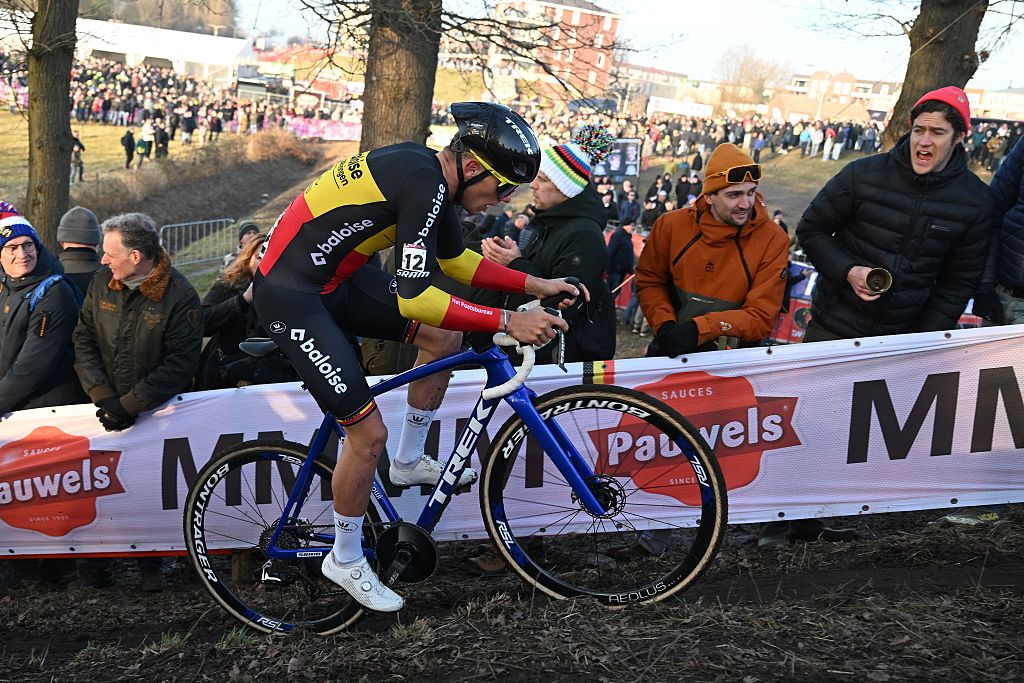Jörg Jaksche: Doping, hypocrisy and a dog called Bella
Former Fuentes client on telling the truth and closed doors
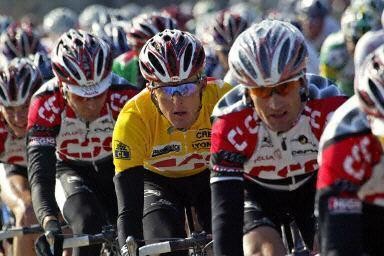
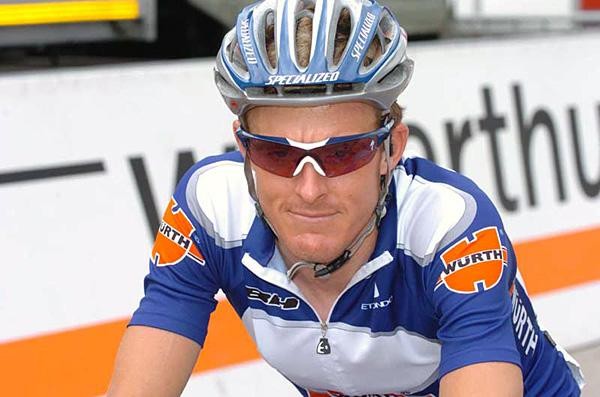
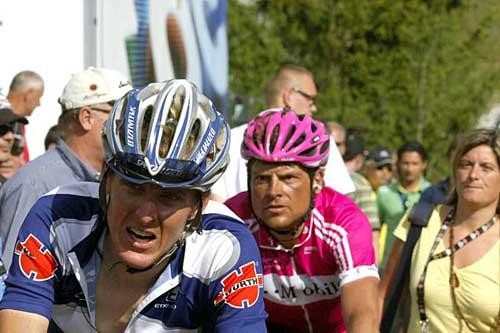
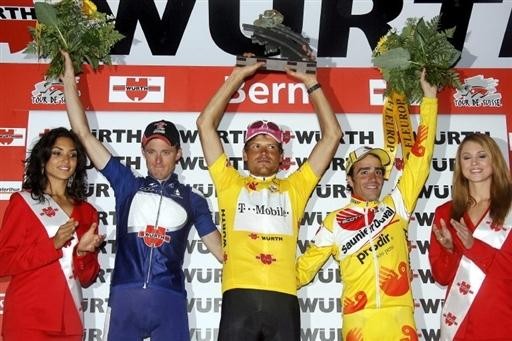
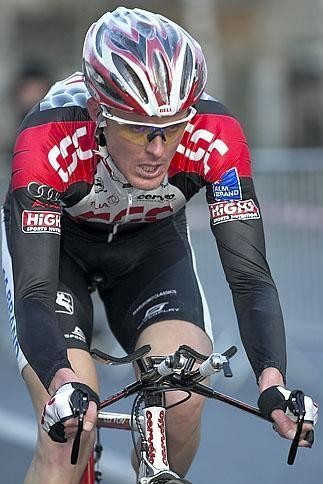
"It was always the dogs. Fuentes, he asked me how I wanted to name my blood bags and I said I didn’t have a clue. I asked what the others did and he said ‘dogs’. I asked if it was ethically okay to name my blood bags after my deceased dogs and he said ‘yes, it’s okay’. My dog was called Bella."
Jörg Jaksche makes the journey to university five days a week. Now an economics student, he’s as far removed from professional cycling as one could image. Occasionally he talks to one of a few pro riders still within the peloton who will still take his calls and he brushes up on the sport’s current affairs, but in terms of livehood and income, his career ended when he confessed to doping.
In 2006 Jaksche was linked to Operacion Puerto and along with his Astana teammates was sent packing from the Tour de France in disgrace. There was a brief stay of execution the following year when he signed for Tinkoff but when the evidence became overwhelming and he was suspended by his team, he decided to confess.
Jaksche is certainly no hero or martyr. He hung on to the life of a liar, even offering a DNA test to prove the blood bag labelled with Bella’s name wasn’t his, but in the end he broke.
The problem was he spoke too loudly. Instead of confessing to just his own weakness and immorality, he lifted the lid on a career of doping: from Polti to Telekom, CSC to ONCE and Astana, it was a long-running chronology of teams that had capitalised and funded systematic doping programmes. He confessed to the German police, their anti-doping agency and the UCI. In a sport where second chances are offered readily, Jaksche should have been provided with a clean slate.
He was handed a reduced suspension of a year – although the UCI had originally pressed for two – but despite the shorter sentence, no team was willing to allow him back. It wasn’t for a lack of talent. He’d won Paris-Nice, made the top twenty in the Tour as a second-year professional and become a reliable domestique.
“I spoke out too much. That was the main problem,” Jaksche tells Cyclingnews six years after Puerto rocked the Tour.
The latest race content, interviews, features, reviews and expert buying guides, direct to your inbox!
“There were riders in the same situation as me and officially they never spoke out but to avoid legal problems in the future they spoke to the police and confessed everything to them but they didn’t talk to the UCI. The pressure from the police was a lot higher. Then these riders went out and said they’d never talked. I didn’t want to have that on my conscience and of course I knew that if I went out and said here’s my story and that this is the system, I knew that there was a big chance of never getting back into cycling again.”
Sure enough, everywhere he turned, Jaksche found each door slammed in his face, with team after team, rider after rider, unwilling to help him. HTC and Slipstream were among the teams he tried to approach but for whatever reason, whether it was his doping past, his confession or his talent, they chose to ignore him.
“I could have done it the easy way. I could have done it the Ivan Basso way and said I’d paid this guy and dropped off some blood but I never had a transfusion. Then I’d be punished but I would have been back. I could have done that but I didn’t want to lie anymore.”
“But I wouldn’t be happy if I’d lied and then confessed something that wasn’t the whole truth and say I’m an anti-doping crusader. That’s even worse than shutting up and saying nothing. For me that’s the worst because you play with the sport, your family name and I didn’t want to do that again and again.”
Hypocrisy was rife in cycling in the wake of Puerto. Bjarne Riis, Alexandre Vinokourov and an endless list of individuals vilified Jaksche claims. Vinokourov claimed that the German had only confessed after being paid a handsome sum of money by a newspaper. Frank Schleck, who rode with Jaksche at CSC, was spared an initial link to Fuentes and went on to win a stage of the 2006 Tour.
“At first Schleck gave some speeches about anti-doping. Then it came out that he knew Fuentes, and he denied it. Then it came out that he’d made payments. I found that humiliating. And you know everyone was fighting to be the first anti-doing crusader. This is the problem of cycling, everyone is afraid of losing the contract, they’re fighting with their elbows to sound as credible as possible and I was fed up. I know what I did, and what I did was wrong but I don’t like hypocrisy.”
“By showing them the mirror, riders weren’t happy with me. Some of them showed a bit of respect but they made it clear that they didn’t want me to destroy their sport because they made a living from it. The big reaction was negative because those involved in that system of doping couldn’t break out of it. They had to go on living with it and they were frightened that the sponsor would pull out of the team and that there were financial repercussions from a confession. I can understand that, but for me it was clear but I was a little bit shocked by the UCI reaction.”
Jaksche spent hours talking to the UCI in the wake of his suspension. He spoke to their lawyers, Anne Gripper, their former head in anti-doping, and president, Pat McQuaid. But despite the cooperation they discounted his testimony, saying that he hadn’t provided enough information. Yet in the public sphere he had talked about Fuentes, an introduction made by Manolo Saiz, doping at CSC, his first encounters with EPO at Polti and the culture within Telekom. The UCI weren’t impressed, and initially said they would appeal and press for a two-year ban.
“If you confess and tell them how things are you normally get a reduction of your punishment. I knew that if I talked it would be difficult to come back anyway, so I had a discussion with the UCI about my confession and if I would get one year or two. Someone from the German criminal board had to call them and say that I did qualify as a testimony for them and therefore my words should be good enough for them.”
The UCI dropped their hopes of a two-year ban but Jaksche had no contact from them as a result. There were no further questions and to Jaksche’s knowledge, no further investigations were made by the UCI into any of the individuals or teams that he’d implicated.
“This is how you have to deal with the UCI. They try and protect their sport but they don’t know how to do that. They think that a sport without scandal is a clean sport and they have so many misleading people in their federation. There are so many cadavers. It’s like having a dead body in your basement festering away and going bad. That’s how the UCI treat doping. They gave me no hope and I felt worse treated by the UCI than if I hadn’t confessed and told them my story. It wasn’t the reaction I was hoping to get."
“McQuaid said this and that but they would have liked me to have handled things differently. I don’t really know what they meant by that.”
Jaksche’s statements on the levels of hypocrisy run in tandem to his beliefs on how the sport functions, from riders to directors and team managers, sponsors and governing bodies. The recent news surrounding Lance Armstrong and his ties to the UCI through donations and allegations of covered up doping tests are demonstrations of cycling’s major issues.
“If you analyse cycling, all these people are born in cycling. They become pros and then they become directors and then they run their teams. It’s an inbred system where the mentality is that if I don’t get caught then I’m clean.”
“I said to myself that the entire situation with these directors pointing the finger at me, calling me this black sheep was wrong because it was without them realising that the entire flock was black. I was just fed up and I didn’t want my parents suffering for what I did and I didn’t want people like Bjarne Riis pointing the finger at me and telling the public how clean everyone on his team was clean. I didn’t want to live that lie and didn’t want to live with the hypocrisy.”
“It was easy to lie to an extent. Not to my family but to the press and the fans. With the press it was a very strange relationship. Sometimes I felt that some of the guys were part of this T-Mobile luxury travelling, coming to camps, staying in 6 star hotels and being given free telephones. They loved the sport and they were critical sometimes but not super critical. There wasn’t an agreement but there was a strange relationship and no one really asked if something happened.”
“They’d ask me about someone like Roberto Heras and I’d give a response but there was always a way out and you were made of Teflon with some universal answers. With the fans…. I heard the interview with Phil Liggett and I listened to him and it was typical case where someone doesn’t want to admit to believe or that he admired the wrong person. He was too close to Lance. It didn’t feel great when young fans or local riders would come up to me and say ‘oh you’re not doping you’re not doing this’ and that wasn’t a nice feeling. It’s not something I’m comfortable with. Thing is if I hadn’t done all that I would have been out of a job pretty quickly.”
The 36-year-old student is now removed from that world. He’s passing exams and studying for a degree that he aims to complete within the next 18 months. When he takes an exam there’s no cheating and he says he has a clear conscience with his past. Asked how the sport can change and Jaksche pauses, aware that the handling of the past is very much intrinsic to how the sport moves forward.
“Ask me who isn’t part of the problem. That would be a much shorter list,” he says.
“Everyone out there is still trying to save their own ass and keep their contracts and sponsors. That means being successful and saying you’re a clean team. People adapt to the situation but I don’t think there’s been a big change attitude wise.”
“Every year they say it’s a new start and the cleanest cycling ever but that’s not true because it’s not a new start every year. We’ve had a lot of chances in the past and now we're still struggling. The credibility of cycling is going down but that’s not the fault of USADA. It’s the fault of everyone because everyone in cycling has some guilt and punishment and consequences are part of this guilt. Most people just don’t want to see it but what WADA and USADA, what they’re doing has to be done.”
Daniel Benson was the Editor in Chief at Cyclingnews.com between 2008 and 2022. Based in the UK, he joined the Cyclingnews team in 2008 as the site's first UK-based Managing Editor. In that time, he reported on over a dozen editions of the Tour de France, several World Championships, the Tour Down Under, Spring Classics, and the London 2012 Olympic Games. With the help of the excellent editorial team, he ran the coverage on Cyclingnews and has interviewed leading figures in the sport including UCI Presidents and Tour de France winners.

